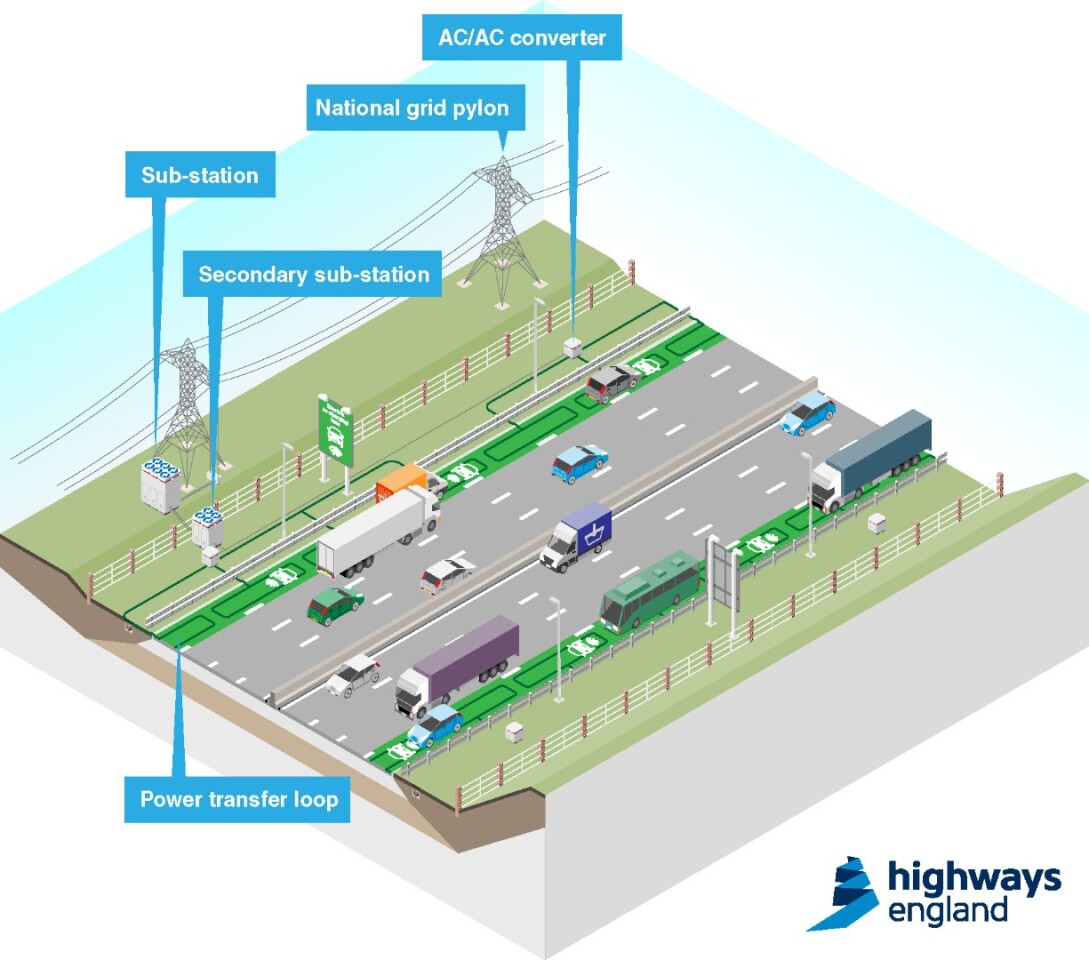Technology to power electric vehicles wirelessly from under the road surface is about to be trialed in the UK. Highways England has announced that it plans to carry out off-road (test track) trials with a view to carrying out subsequent on-road trials of the technology, which is designed to increase the range of EVs.
The concept of embedding electric vehicle charging technology under the road has been explored by Stanford University and used to power buses in Korea. These trials, however, are said to be the first of their kind.
UK Transport Minister Andrew Jones says the trials will help to keep Britain at the forefront of the development of this technology. "The potential to recharge low-emission vehicles on the move offers exciting possibilities," he says. "We continue to explore options on how to improve journeys and make low-emission vehicles accessible to families and businesses."
The trials follow the completion of a study by Highways England into the feasibility of wireless in-road charging and potential solutions. Highways England is the government organization responsible for maintaining and operating England’s motorways and major A roads. It says the trials will test if the technology could work safely and effectively on motorways and A roads.

For the trials, vehicles will be fitted with the requisite wireless technology, and equipment will also be installed underneath a test-road surface. Full technical details will be released once a contractor has been appointed to build the system.
The testing will replicate motorway conditions and, if successful, may ultimately mean that EVs could be driven for long distances without the need to stop and charge their batteries. Highways England says it is also committed to installing plug-in charging points every 20 miles (32 km) on the motorway network.
The trials are scheduled to begin later this year and are expected to last for approximately 18 months.
Source: Highways England





